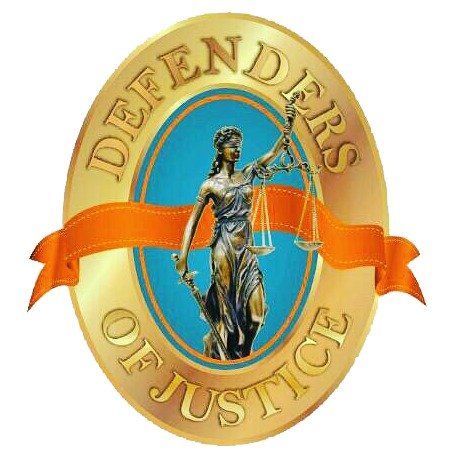Best New Business Formation Lawyers in La Lucia
Share your needs with us, get contacted by law firms.
Free. Takes 2 min.
List of the best lawyers in La Lucia, South Africa
About New Business Formation Law in La Lucia, South Africa
The process of new business formation in La Lucia, South Africa, involves several legal and administrative steps aimed at establishing your business presence legally and sustainably. Whether you are starting a sole proprietorship, partnership, or a corporate entity, understanding the local regulations and compliance requirements is crucial. This guide provides a comprehensive overview of the legal landscape you will navigate when forming a new business in La Lucia, from choosing a business structure to registering with the relevant authorities.
Why You May Need a Lawyer
Engaging a lawyer can be beneficial during various stages of new business formation due to the complexity and legalities associated with the process. Common situations where legal assistance could be invaluable include drafting and reviewing contracts, understanding tax obligations, handling compliance issues with local and national regulations, protecting intellectual property, and assisting with disputes among partners or shareholders. A lawyer can also offer strategic advice tailored to your business needs, ensuring you avoid legal pitfalls and maximize growth potential.
Local Laws Overview
La Lucia, part of the larger eThekwini Metropolitan Municipality, adheres to South African national laws concerning business formation. Key aspects include:
- Business Registration: All new businesses must be registered with the Companies and Intellectual Property Commission (CIPC).
- Taxation: Businesses need to be familiar with the South African Revenue Service (SARS) for tax registration, including VAT, PAYE, and income tax.
- Employment Laws: Compliance with the Employment Equity Act and Basic Conditions of Employment Act is necessary when hiring employees.
- Licensing: Depending on your business type, specific local permits and licenses may be required, such as zoning approvals and health permits.
- Consumer Protection: Adherence to the Consumer Protection Act if your business deals directly with consumers.
Frequently Asked Questions
What type of business structure should I choose?
Considerations include tax implications, liability concerns, and administrative obligations. Common structures are sole proprietorship, partnership, private company, and public company.
How do I register my business?
Business registration is done through the CIPC. You need to submit various documents, including your company name, Memorandum of Incorporation, and fees.
Do I need a business license in La Lucia?
Depending on your business activities, specific licenses are required. Check with the eThekwini Municipality for guidance on the necessary permits.
What are my tax obligations?
Businesses must register with SARS for income tax, VAT, PAYE, and possibly other taxes. Consulting with a tax professional is recommended.
How do I protect my business name and logo?
Register your business name with CIPC and consider trademark registration for your logo to safeguard your intellectual property.
What are the employment laws I must adhere to?
You must comply with prevailing labor laws regarding wages, working conditions, and employment contracts to ensure fairness and equity.
Can I run my business from home?
Operating from home is possible, but you must check zoning laws and potential need for special permissions with the municipality.
How can I secure funding for my business?
Explore options like bank loans, venture capital, government grants, and incentives for small businesses and startups.
What steps can I take to scale my business legally?
Consult with a legal advisor to explore contracts, partnerships, franchising, and compliance with additional legal criteria as you grow.
Where can I get more specific guidance?
Professional legal and financial advisors can provide tailored advice. You can also visit the CIPC and SARS websites for authoritative guidance.
Additional Resources
For further assistance in new business formation, consider reaching out to:
- Companies and Intellectual Property Commission (CIPC): For business registration and intellectual property queries.
- South African Revenue Service (SARS): For tax-related information and registration.
- eThekwini Municipality: For local business permits, zoning laws, and regulations.
- Department of Trade, Industry and Competition (DTIC): Provides resources and support for business development.
- Local Chamber of Commerce: For networking opportunities and shared business development resources.
Next Steps
If you require legal assistance in forming a new business in La Lucia, consider the following steps:
- Seek recommendations for reputable business lawyers from your professional network or online reviews.
- Schedule consultations to discuss your business needs and legal strategies.
- Document and prioritize your business goals and legal requirements to aid in your consultation.
- Assess the lawyer’s understanding of local laws and their ability to offer tailored business advice.
- Once satisfied, engage a lawyer to help navigate the registration process and legal obligations.
Lawzana helps you find the best lawyers and law firms in La Lucia through a curated and pre-screened list of qualified legal professionals. Our platform offers rankings and detailed profiles of attorneys and law firms, allowing you to compare based on practice areas, including New Business Formation, experience, and client feedback.
Each profile includes a description of the firm's areas of practice, client reviews, team members and partners, year of establishment, spoken languages, office locations, contact information, social media presence, and any published articles or resources. Most firms on our platform speak English and are experienced in both local and international legal matters.
Get a quote from top-rated law firms in La Lucia, South Africa — quickly, securely, and without unnecessary hassle.
Disclaimer:
The information provided on this page is for general informational purposes only and does not constitute legal advice. While we strive to ensure the accuracy and relevance of the content, legal information may change over time, and interpretations of the law can vary. You should always consult with a qualified legal professional for advice specific to your situation.
We disclaim all liability for actions taken or not taken based on the content of this page. If you believe any information is incorrect or outdated, please contact us, and we will review and update it where appropriate.








